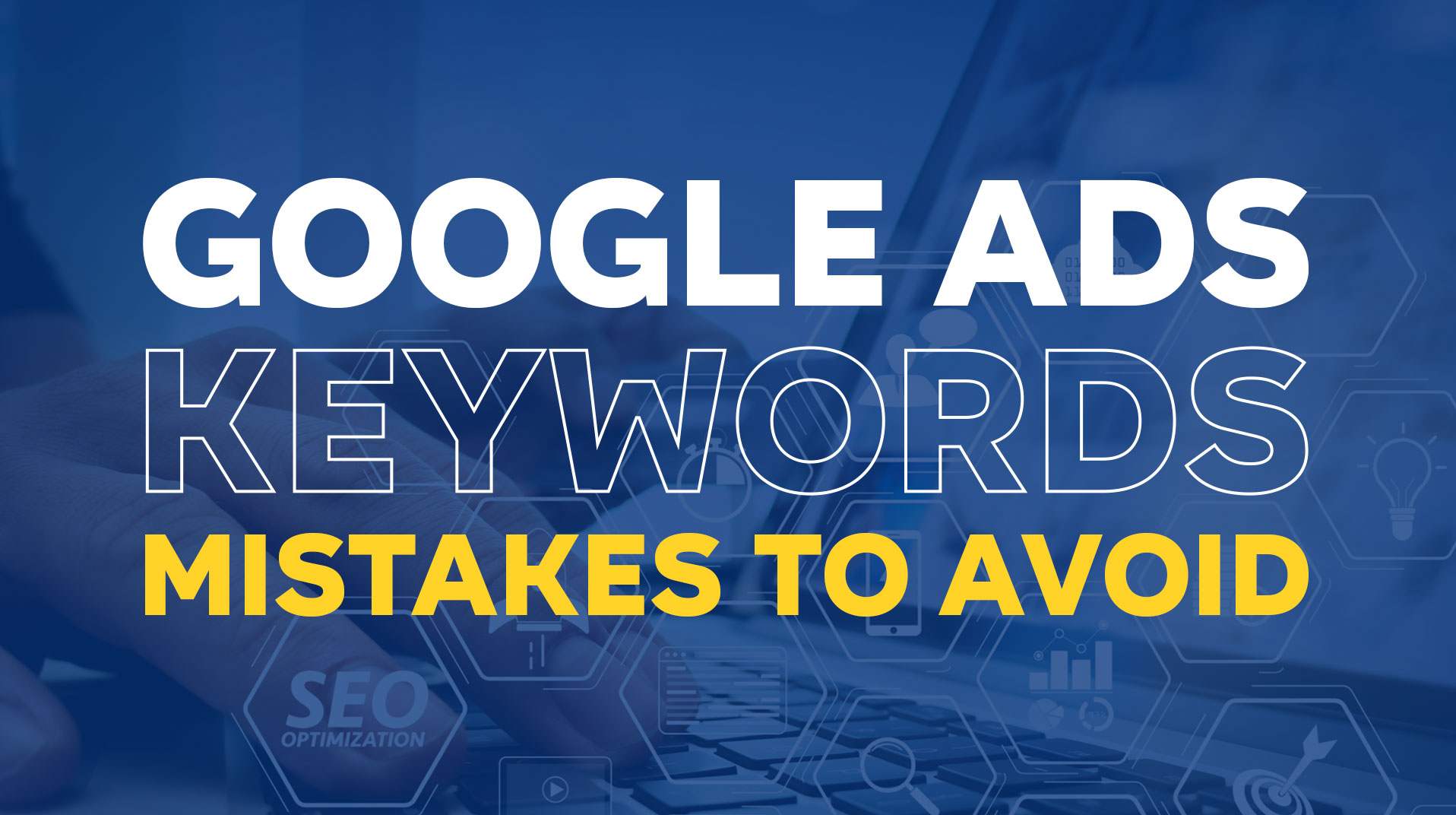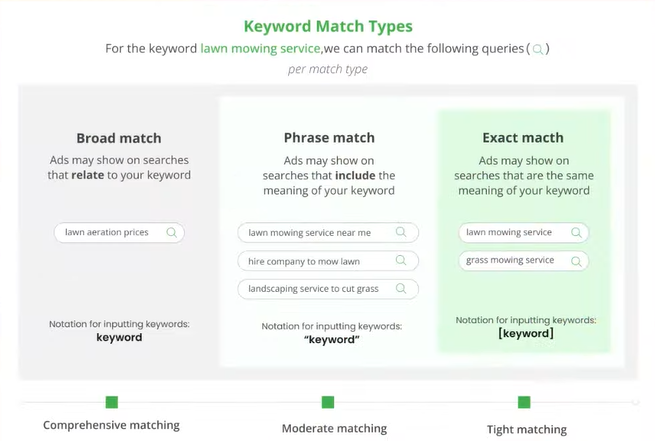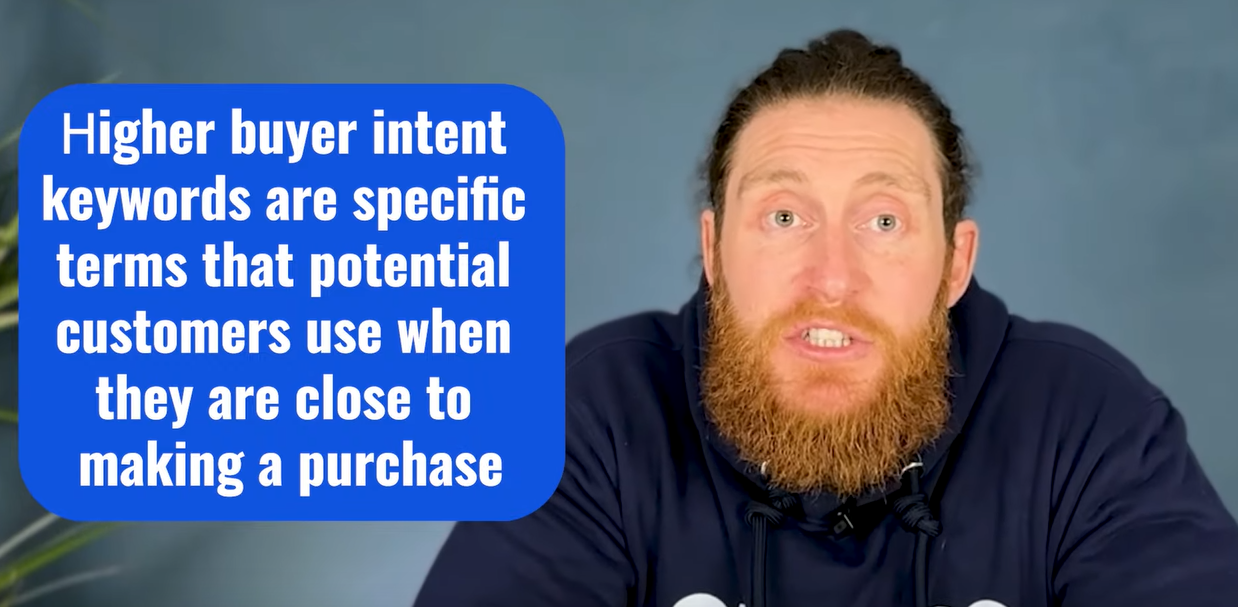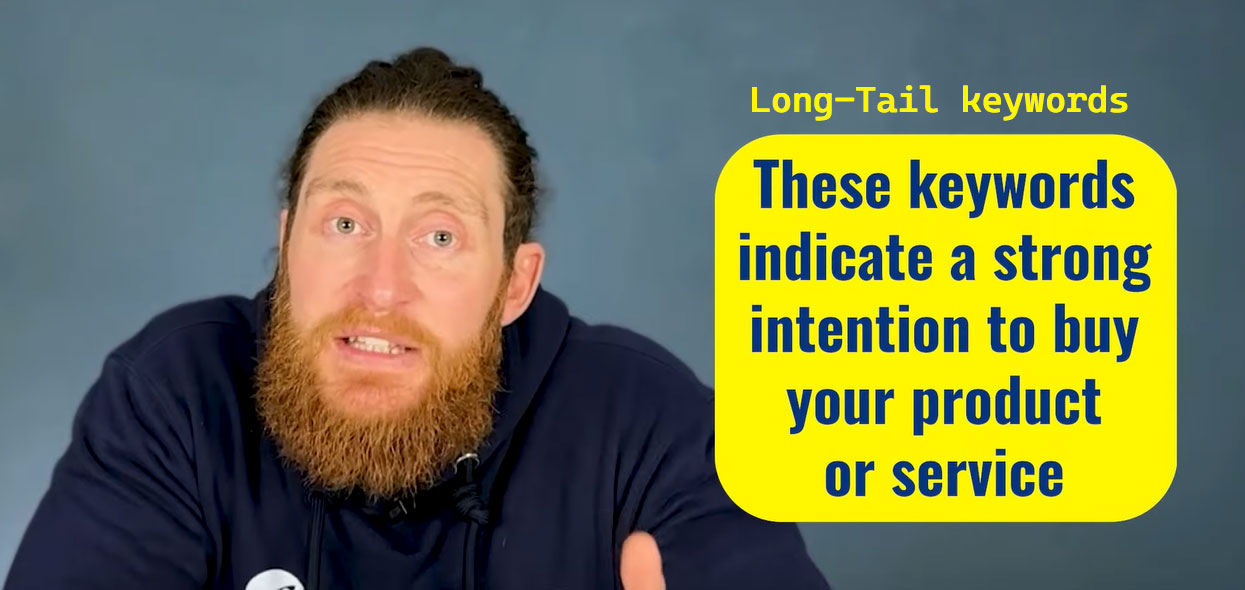
Are you frustrated with running Google ad campaigns that seem to burn through your budget without delivering the expected results? You’re not alone. Many businesses dive into Google Ads without fully understanding the nuances of keyword selection, leading to common mistakes that hamper campaign effectiveness.
In this blog, we delve into the heart of Google Ads success by addressing the critical aspect of keyword selection. By identifying and rectifying these common keyword mistakes, you can unlock the full potential of your ad campaigns, driving relevant traffic, boosting conversions, and maximising your ROI.
Mistake 1: Incorrect Match Types

The Issue: Broad Match Keywords
Inexperienced advertisers often rely heavily on broad match keywords, which cast a wide net but can result in displaying ads for irrelevant searches. For example, if you use the broad match keyword “roof repairs,” your ad might show up for searches like “DIY roof repair guide” or “roof repair tools,” which may not align with your service intent.
The Solution: Use Exact and Phrase Match
Instead of solely relying on broad match keywords, leverage the power of exact match and phrase match types.
- Exact Match: Enclose your keyword in brackets [roof repairs] to ensure your ad appears only when someone searches for that exact term or a close variant.
- Phrase Match: Place your keyword in quotation marks “roof repairs” to target searches that include your keyword as a phrase, allowing some variations before or after.
The Strategy: Balancing Match Types
A recommended strategy involves a balance of match types within your ad groups. Use exact match and phrase match keywords as your primary focus to attract highly relevant traffic. Include one or two broad match keywords to uncover new keyword variations based on search data.
Adapting to Google's Changes
Recent updates in Google’s matching algorithms have made understanding match types even more critical. While exact match used to be precise, Google now considers close variations and synonyms. This shift emphasizes the need for a proper keyword strategy and ongoing monitoring to refine your keyword selection based on performance data.
Optimizing Ad Relevance
By refining your match types, you enhance ad relevance, reduce wasted ad spend on irrelevant clicks, and improve your Quality Score. A higher Quality Score leads to better ad placements and lower costs-per-click, ultimately maximising your return on investment (ROI) from Google Ads campaigns.
Mistake 2: Using Short and Broad Keywords

Another common misstep in Google Ads campaigns is the use of overly broad and short keywords, which can lead to inefficient spending and low conversion rates.
The Issue: Lack of Specificity
Businesses new to Google Ads often fall into the trap of using generic or short keywords that do not adequately reflect their services or products. For instance, a roofing company bidding on the keyword “roof” may attract clicks from users interested in various roofing materials or DIY projects, rather than those seeking professional roofing services.
The Solution: Long-Tail and Descriptive Keywords
To address this issue, focus on long-tail keywords that are more specific and closely related to your offerings. Instead of “roof,” target keywords like “flat roof repairs,” “residential roof installation,” or “emergency roof leak repair.” These longer and descriptive keywords help target users who are actively seeking your specific services.
Benefits of Long-Tail Keywords
- Higher Relevance: Long-tail keywords match search intent more accurately, leading to higher ad relevance and click-through rates.
- Reduced Competition: Long-tail keywords typically have lower competition levels, allowing you to bid more competitively and achieve better ad placements.
Driving Quality Traffic
By using long-tail and descriptive keywords, you attract users who are more likely to convert into leads or customers. These keywords filter out casual browsers or informational seekers, ensuring your ad budget is spent on valuable clicks that align with your business goals.
Mistake 3: Neglecting High Buyer Intent Keywords

One of the critical mistakes many businesses make in their Google Ads campaigns is overlooking high buyer intent keywords, focusing instead on broader, informational terms that don’t lead to conversions.
The Issue: Targeting Informational Keywords
Businesses often target keywords that reflect general information or early-stage research queries related to their industry. While these keywords may attract clicks, they often fail to drive conversions because they don’t align with users ready to make a purchase or take action.
The Solution: Prioritizing High Buyer Intent Keywords
High buyer intent keywords are specific terms that indicate a strong intent to engage with your business or make a purchase. These keywords target users actively seeking your products or services, making them crucial for campaign success.
Identifying High Buyer Intent Keywords
- Transactional Keywords: Focus on terms like “buy now,” “get a quote,” “book a service,” or “free trial.” These terms signal users ready to convert.
- Local Intent Keywords: Include location-specific modifiers like city names or “near me” to capture users searching for local businesses offering specific services.
Benefits of High Buyer Intent Keywords
- Improved Conversion Rates: Targeting users with high buyer intent increases the likelihood of conversions, leading to a better return on ad spend (ROAS).
- Reduced Ad Spend Waste: By filtering out non-converting traffic, you optimise your budget for clicks more likely to result in valuable actions.
Mistake 4: Targeting Keywords with Low Search Volume

One of the critical errors in Google Ads campaigns is targeting keywords with low search volume. While it may seem logical to target niche or specific keywords, doing so without considering search volume can lead to ineffective campaigns.
The Problem: Ineffective Keyword Selection
Businesses often choose keywords based on relevance and alignment with their products or services. However, if these keywords have low search volume (i.e., few people are searching for them), your ads won’t reach enough potential customers.
The Impact of Low Search Volume Keywords
- Limited Reach: Low search volume keywords restrict your ad’s visibility, reducing opportunities to connect with potential customers.
- Wasted Ad Spend: Spending budget on keywords with minimal search traffic can result in inefficient use of ad dollars, with fewer clicks and conversions.
Strategies to Address Low Search Volume Keywords
- Keyword Research Tools: Leverage tools like Google Keyword Planner, SEMrush, or Ahrefs to identify keywords with adequate search volume related to your industry and offerings.
- Long-Tail Keywords: Target longer, more specific keyword phrases (long-tail keywords) that may have lower search volume but higher conversion intent. These phrases often indicate users closer to making a purchase decision.
Balancing Relevance and Reach
- Relevance: Ensure keywords align with your business offerings, value propositions, and target audience interests.
- Search Volume: Prioritize keywords with a balance of relevance and reasonable search volume to maximise campaign reach while targeting qualified leads.
Monitoring and Optimisation
Regularly monitor keyword performance metrics such as impressions, click-through rates (CTR), and conversions. Identify keywords with consistently low performance due to low search volume and consider pausing or refining them.
Expanding Keyword Variations
Explore variations of core keywords or related terms that maintain relevance but may have higher search volume. This strategy broadens your keyword reach without sacrificing relevance to your target audience.
Campaign Expansion and Testing
As your campaign matures, test new keyword variations, ad creatives, and landing page experiences. A/B testing can help identify high-performing keywords and Optimise campaign ROI over time.
Mistake 5: Overloading Keywords in Ad Groups

One of the common mistakes in Google Ads campaigns is overcrowding ad groups with too many keywords. While it might seem efficient to consolidate keywords into fewer groups, this approach can lead to reduced ad relevance and performance.
The Problem: Lack of Targeted Ad Messaging
When multiple unrelated keywords are grouped together, it becomes challenging to create highly relevant ad copy and landing pages that address specific user intents. This lack of alignment can result in lower ad quality scores and decreased ad performance.
The Impact of Overloaded Ad Groups
- Poor Ad Relevance: Ads may not align closely with users’ search queries within the ad group, leading to lower click-through rates (CTR) and conversions.
- Keyword Cannibalization: Similar keywords competing within the same ad group can cannibalize each other’s performance, diluting campaign effectiveness.
Strategies to Address Overloaded Ad Groups
- Segmentation by Theme: Organize keywords into ad groups based on thematic relevance. For example, separate ad groups for different product lines or service categories.
- Specific Ad Messaging: Craft ad copy and landing pages tailored to each ad group’s theme and targeted keywords. Highlight unique value propositions and benefits relevant to users’ search intents.
Benefits of Well-Structured Ad Groups
- Improved Ad Relevance: Align ad messaging closely with user search queries, increasing the likelihood of clicks and conversions.
- Higher Quality Scores: Targeted ad groups with relevant keywords, ad copy, and landing pages contribute to higher quality scores, potentially lowering cost-per-click (CPC) and improving ad rankings.
Monitoring and Optimisation
Regularly review ad group performance metrics such as CTR, conversion rates, and quality scores. Identify underperforming ad groups with low relevance or high keyword competition and consider restructuring them.
Conclusion
Implementing these strategies not only helps avoid budget wastage but also unlocks the full potential of Google Ads in reaching your target audience and driving valuable conversions. Keep learning, testing, and refining your campaigns to stay relevant and achieve long-term advertising success on the Google platform!

Speak with our Google Ads Expert
Got a quick question about marketing your local business
with Google Ads? We can help.
Speak to one of our experts today on 01702 668207 or send us a message.
